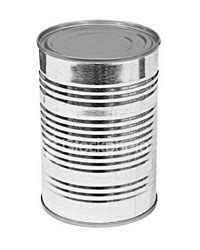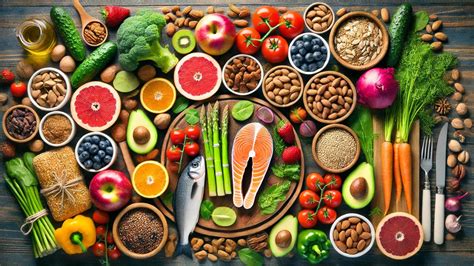How can men naturally boost testosterone for peak energy & performance?

Testosterone, often hailed as the cornerstone of male vitality, plays a pivotal role in more than just libido and muscle mass. Optimal testosterone levels are crucial for maintaining energy, mood, cognitive function, bone density, and overall metabolic health. As men age, or due to various lifestyle factors, these levels can decline, leading to symptoms like fatigue, decreased libido, weight gain, and reduced athletic performance. Fortunately, a multi-faceted natural approach can significantly help in optimizing your body’s testosterone production.
Embrace a Nutrient-Rich Diet
What you eat directly impacts your hormonal balance. To naturally support testosterone synthesis, focus on a diet rich in whole, unprocessed foods. Key nutrients include zinc, Vitamin D, and healthy fats.
- Zinc: Found abundantly in oysters, red meat, poultry, beans, and nuts, zinc is vital for testosterone production. Deficiency can lead to lower levels.
- Vitamin D: Often called the “sunshine vitamin,” Vitamin D acts as a steroid hormone in the body and is strongly linked to testosterone levels. Aim for regular safe sun exposure and incorporate foods like fatty fish (salmon, mackerel), fortified milk, and eggs.
- Healthy Fats: Don’t fear fats! Monounsaturated fats (avocados, olive oil, nuts) and healthy saturated fats (from lean meats, coconut oil in moderation) are essential building blocks for hormone production. Avoid trans fats and excessive polyunsaturated fats from processed vegetable oils.
- Protein & Carbohydrates: Ensure adequate intake of quality protein (lean meats, fish, eggs, legumes) for muscle maintenance and repair, and complex carbohydrates (whole grains, fruits, vegetables) to fuel workouts and maintain stable blood sugar, which indirectly supports hormone balance.

Optimize Your Exercise Routine
Exercise is a powerful natural testosterone booster, but not all workouts are created equal. Focus on strategies that stimulate the greatest hormonal response.
- Strength Training: Lifting heavy weights, particularly compound exercises like squats, deadlifts, bench presses, and rows, has been shown to significantly increase testosterone levels. Aim for 3-4 sessions per week, focusing on progressive overload.
- High-Intensity Interval Training (HIIT): Short bursts of intense exercise followed by brief recovery periods can also effectively boost testosterone. HIIT is time-efficient and excellent for overall fitness.
- Avoid Overtraining: While exercise is good, excessive or prolonged endurance training without adequate recovery can actually lower testosterone and increase cortisol (a stress hormone). Listen to your body and ensure sufficient rest.

Prioritize Sleep and Stress Management
Modern lifestyles often compromise two critical factors for hormonal health: sleep and stress.
- Quality Sleep: Testosterone production largely occurs during sleep. Chronic sleep deprivation (less than 7-9 hours per night) can dramatically reduce testosterone levels. Create a consistent sleep schedule, ensure your bedroom is dark, cool, and quiet, and limit screen time before bed.
- Stress Reduction: Chronic stress elevates cortisol, which has an inverse relationship with testosterone. Implement stress-reducing practices into your daily routine, such as meditation, yoga, deep breathing exercises, spending time in nature, or engaging in hobbies.

Maintain a Healthy Body Weight
Excess body fat, particularly around the abdomen, can lead to increased estrogen levels and decreased testosterone. Fat cells contain an enzyme called aromatase, which converts testosterone into estrogen. Achieving and maintaining a healthy body weight through diet and exercise is fundamental for optimal hormonal balance.

Consider Natural Supplements (with caution)
While diet and lifestyle are paramount, certain natural supplements can offer support. However, it’s crucial to consult a healthcare professional before starting any new supplement regimen.
- Ashwagandha: An adaptogenic herb that may help reduce stress and improve testosterone levels in some men.
- Fenugreek: Some studies suggest it can help boost free and total testosterone.
- D-Aspartic Acid (DAA): A natural amino acid that may play a role in testosterone synthesis.
- Magnesium: Often deficient, magnesium contributes to numerous bodily functions, including testosterone production.
Remember, supplements are meant to supplement a healthy lifestyle, not replace it. Their effectiveness varies from person to person.

Conclusion
Boosting testosterone naturally is a holistic journey that requires consistent effort across several lifestyle domains. By optimizing your diet, embracing effective exercise, prioritizing sleep, managing stress, and maintaining a healthy weight, you can significantly enhance your body’s ability to produce this vital hormone. The result? Not just improved energy and performance, but a profound boost to your overall health, vitality, and quality of life. Consult with a healthcare professional to tailor these strategies to your individual needs and to rule out any underlying medical conditions.









